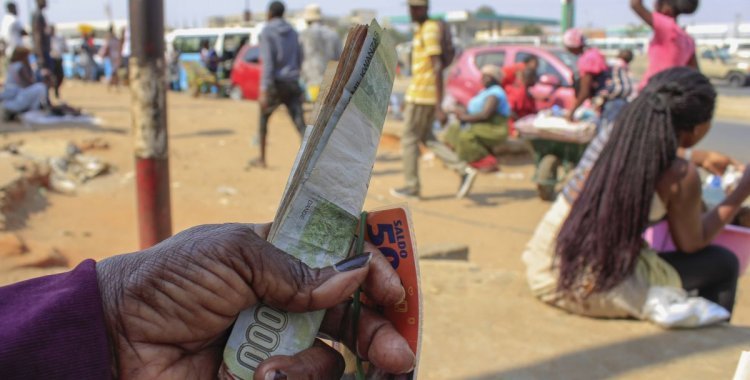This measure, which aims to restore the purchasing power of families, affected by the country's economic situation, was announced on Friday by the leader of the Popular Movement for the Liberation of Angola (MPLA), the ruling party, João Lourenço.
At the end of the Council of Ministers meeting, chaired by the Head of State, João Lourenço, the Minister of Public Administration, Labor and Social Security (MAPTSS), Teresa Dias, said that before the decision, work was carried out by a technical group, integrated by the Government and social partners, including the main trade union forces in the country.
Teresa Dias said that this study made it possible to find a balance between the two groups, reaching the conclusion that there should be an impact of the national minimum wage in the order of 50 percent.
"Then it was perfectly agreed between the parties, that, whether in the various sectors, agriculture, as an example, we would go from 21,454 kwanzas to 32,181.15 kwanzas, we would pass, in transport, services and manufacturing industry, with a minimum wage of 26,817 kwanzas to 40,226.00 kwanzas, in trade and industry from 32,000 kwanzas to 48,271 kwanzas", said the minister.
For the minister, in this proposal all interests are represented, within the scope of the negotiations they had, both with the unions and with the employers.
"What was understood is that we should, in a first phase, have an approach that allows, for the first time, to have a positive differentiation, that is, within the various scenarios made and, according to our financial availability, we understand that we should impact more in the lower classes, in order to be able to decrease the higher classes in percentage", he pointed out.
In the first scenario, the minister explained by way of example, cleaning assistants go from 33,598.36 kwanzas to 67,807.59 kwanzas, corresponding to an impact of 102 percent on the previous salary.
"This exercise with the greatest impact was from the non-technical classes to the technical classes, from third-level senior technicians, to the full professor, we only signaled as an impact in the amount of 4 percent only, with the lowest classes being those that the more we increase", he stressed.
Teresa Dias said that holders of political positions, leaders and leaders were not contemplated "because the executive is concerned with solving the problem of those who have the least".
"And, therefore, he understood that at this stage, they should keep the salaries they have until better economic and financial conditions are found to also deserve their appreciation", she stressed.
In turn, the Minister of Finance, Vera Daves, assured that there are guaranteed and reserved financial resources to move forward with the implementation of the proposal.
"The measure that we are proposing is sustainable over time, so we will be able to maintain this measure over time, however, if we are asked for much more, it will be extremely difficult to meet without jeopardizing the sustainability of public finances that we have sought to defend for the good of Angola and the Angolans", she stressed.
According to Vera Daves, the objective is to maximize adjustment "with the people who earn less and who are the ones who suffer the most from the impact of inflation and their difficulty in acquiring what is most basic in satisfying their individual needs".
"That was the exercise we did, we will continue to work together, in dialogue with union organizations and with the forces that represent senior technicians, we only appeal to the understanding of these classes so that the final result is the best possible and that it does not into question everything that we still have to do in several other types of expenditure, whether current or capital", she emphasized.
Until the implementation of this measure, the holder of the Finance portfolio said that the process involves the approval of a set of diplomas "which must follow its path".
"One of them is a presidential legislative decree, which means that we will still have to go to the National Assembly to have legislative authorization to do so, it will follow the normal procedures and we will try to be as diligent as possible, because we are aware that it is a measure of great impact. and we are also aware of the difficulties that our citizens have been experiencing", she said.







